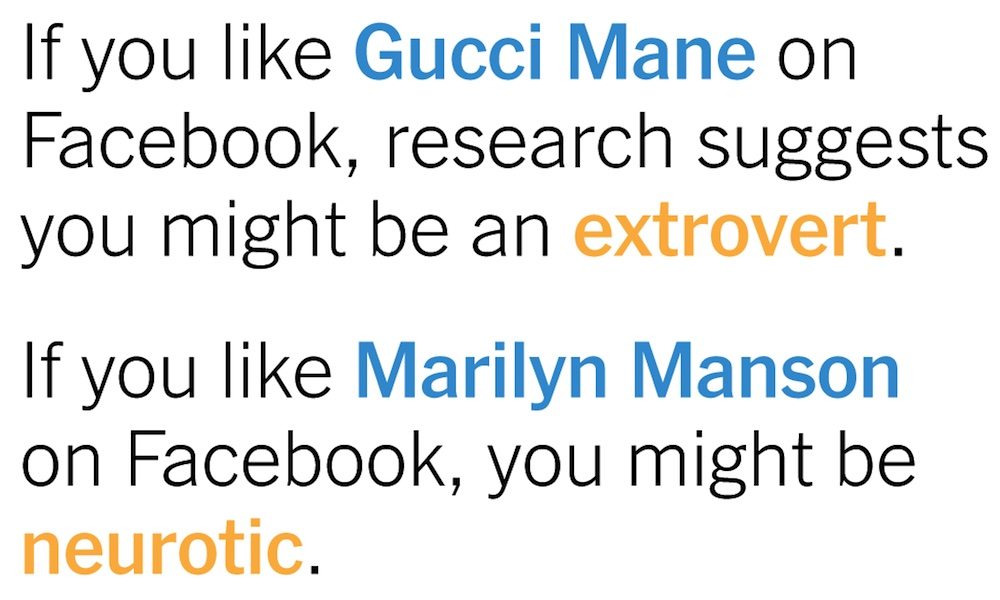This Is How Your Facebook ‘Likes’ Reveal So Much About You
 Credit: The New York Times
Credit: The New York Times
Toggle Dark Mode
If you’ve been following the news about Facebook recently, you’re probably uncomfortably aware of just how much of your data is available on the platform.
But, according to a new report by the New York Times, that data might go further than just revealing which celebrities, bands or TV shows you like. In fact, as the Times reports, researchers have figured actually out how to use your interest in various topics to determine aspects of your personality.
That’s part of why Cambridge Analytica collected so much data on Facebook users (against their will) — the firm was building its own behavioral and predictive models to target voters for political campaigns. And while that controversy is still unfolding, the ramifications are pretty worrying.
As the Times points out, researchers at Stanford University and Cambridge University’s Psychometrics Center have created a predictive model that can assess various aspects of a user’s personality — just by using their Facebook “likes.”
The model predicts a person’s extroversion, openness, conscientiousness, agreeableness and, interestingly, their level of neuroticism.
- Users who liked Tom Waits, Salvador Dali and writing, for example, were ranked as the most open.
- Users who like Cheryl Cole, the Adidas Football brand, or The Hills TV show were the least open.
- If you’ve “liked” Michael Kors, DJ Pauly D or Gucci Mane on Facebook, the model would rank you among the most extroverted users.
- On the other hand, if you like anime, Nightwish, drawing or video games, the model will place you among the least extroverted.
And the researchers found that the accuracy of their model was startling — to say the least. The team used a pool of 32,000 participants to compare their model’s accuracy against personality assessments made by the respondent’s friends or loved ones.
With just 10 likes, the model was more accurate than one or two of the user’s friends. But that’s not all.
With 150 likes, it was more accurate than a family member — with 300, it surpassed the accuracy of a spouse.
Based on their research, the team found it was particularly good at predicting user’s “life outcomes,” including substance abuse, political attitudes, and their general physical health.
While the Cambridge Analytica scandal is far from over, it’s bringing to light privacy issues that every internet user should be concerned about. So the next time you “like” a page on Facebook, it might be smart to think about the potential implications of that simple decision.
At the very least, it might be time to learn how to protect your own privacy on the social media platform.






